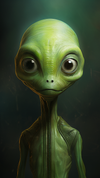Why "Childhood's End" Remains a Defining Work of Science Fiction
Arthur C. Clarke's "Childhood's End" offers a haunting meditation on peace, progress, and transcendence, inviting readers to confront humanity's limits in a world shaped by reason and wonder.
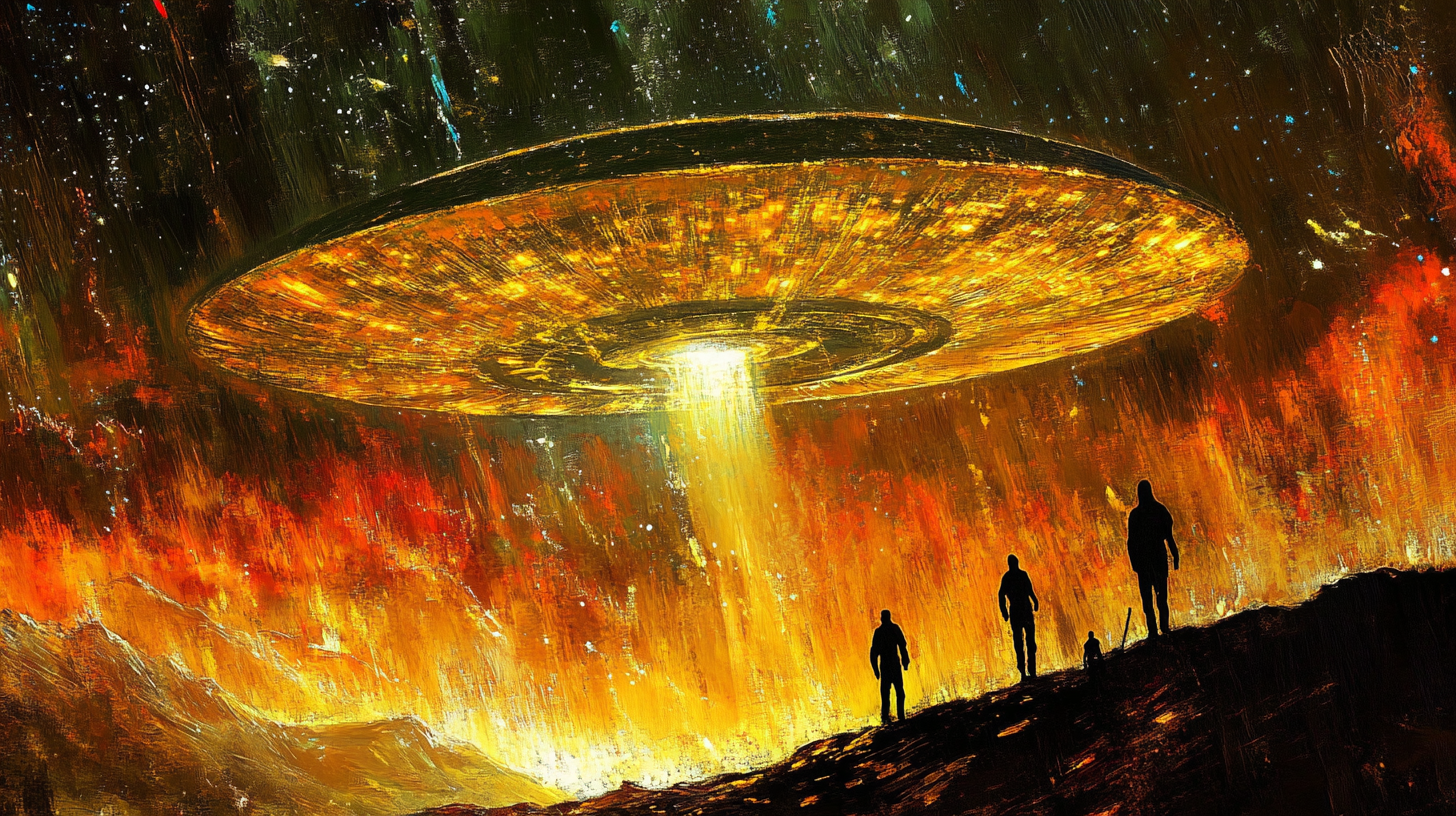
The Quiet Arrival of a Masterpiece
In the early 1950s, science fiction was still shaking off its pulp origins. Rocket ships and ray guns filled the pages of magazines, but something deeper was beginning to take root. The genre was growing up. Into this evolving landscape came Arthur C. Clarke's "Childhood's End," first published in 1953. It did not crash through the gates with spectacle. It arrived with calm authority, offering a vision more philosophical than physical, more haunting than heroic.
Clarke was already known to readers of Astounding Science Fiction and other journals as a precise and forward-thinking writer. He had a background in physics and a mind tuned to the possibilities of space exploration. But with "Childhood's End," he stepped beyond his usual domain. This was not a novel of rockets or rebels. It was a quiet speculation on the future of mankind, written in a voice as restrained as it was assured.
"Childhood's End" did not immediately top bestseller lists or spark Hollywood interest. What it did was stay. Readers passed it along. Reviewers gave it respectful attention. Over time, its reputation grew. It became a touchstone for readers who sensed that science fiction could do more than entertain. It could ask unsettling questions. It could propose answers that lingered like scripture.
Today, the book is widely considered a classic. That is not the question. The question is why it remains so. What in its calm, deliberate pages continues to capture the imagination of readers long after flashier tales have faded?
A Vision in Three Movements – Narrative Structure and Scope
"Childhood's End" unfolds in three distinct parts, each building on the last with quiet deliberation. Clarke's structure is not arbitrary. It is foundational. The novel progresses from the tangible to the transcendent, from the present concerns of Earth to questions that reach beyond space and time. This movement is not a sprint. It is a steady climb, one that reshapes the reader's expectations at each stage.
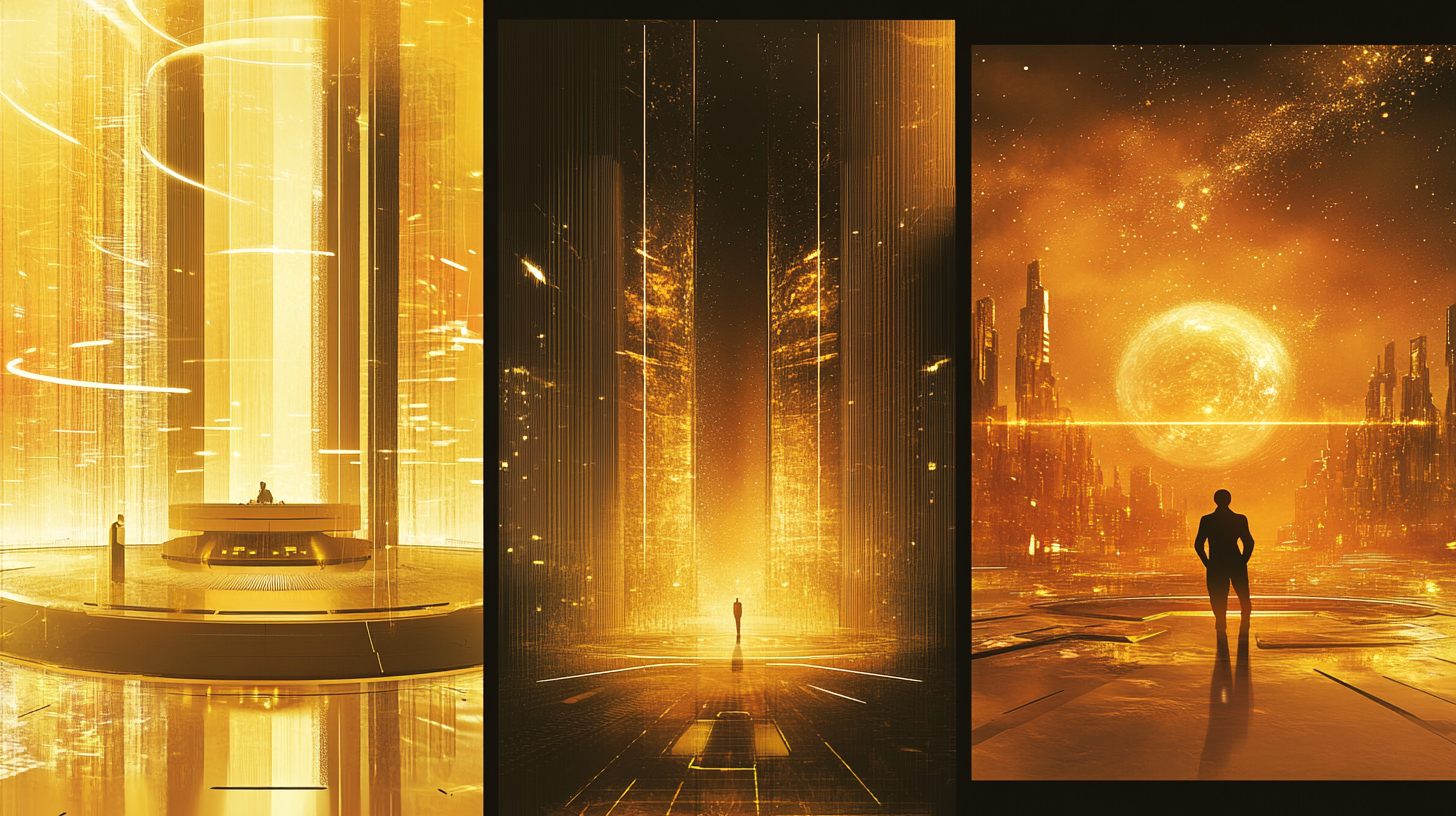
The first part is rooted in realism. Clarke begins with familiar territory—diplomacy, science, and the recognizable tensions of mid-century Earth. His tone is measured, the world clearly drawn. But this is only the beginning. The narrative then shifts into a second phase that opens up philosophical territory. The pacing slows, the scope widens, and Clarke begins to ask deeper questions—not just about politics or power, but about purpose. The final section leaves the ground entirely, venturing into a realm of ideas that most writers would not dare approach. Clarke does not blink. He walks straight into the unknown.
This transition—from grounded realism to cosmic abstraction—is handled with such quiet confidence that the reader often does not notice how far he has traveled until the final pages. There is elegance in the restraint. Clarke never forces his hand. He allows the ideas to grow naturally, as if the story were unfolding rather than being constructed.
This tripartite structure gives "Childhood's End" its mythic resonance. The novel does not merely tell a story. It performs a transformation. It asks the reader to evolve alongside the narrative, to see with wider eyes as each part turns the page of history. Clarke's technique is patient and purposeful. The reward is a sense of wonder that lingers long after the book is closed.
Utopia's Shadow – Themes of Evolution, Transcendence, and the Cost of Peace
At the heart of "Childhood's End" lies a question that has haunted civilization since the dawn of recorded thought—what is the true cost of peace? Clarke presents a world that achieves harmony not through war or revolution, but through surrender. This surrender is not to tyranny, but to something gentler and far more unsettling. It is a surrender of ambition, of struggle, and eventually of identity. The result is peace, but not the kind most men would recognize as freedom.
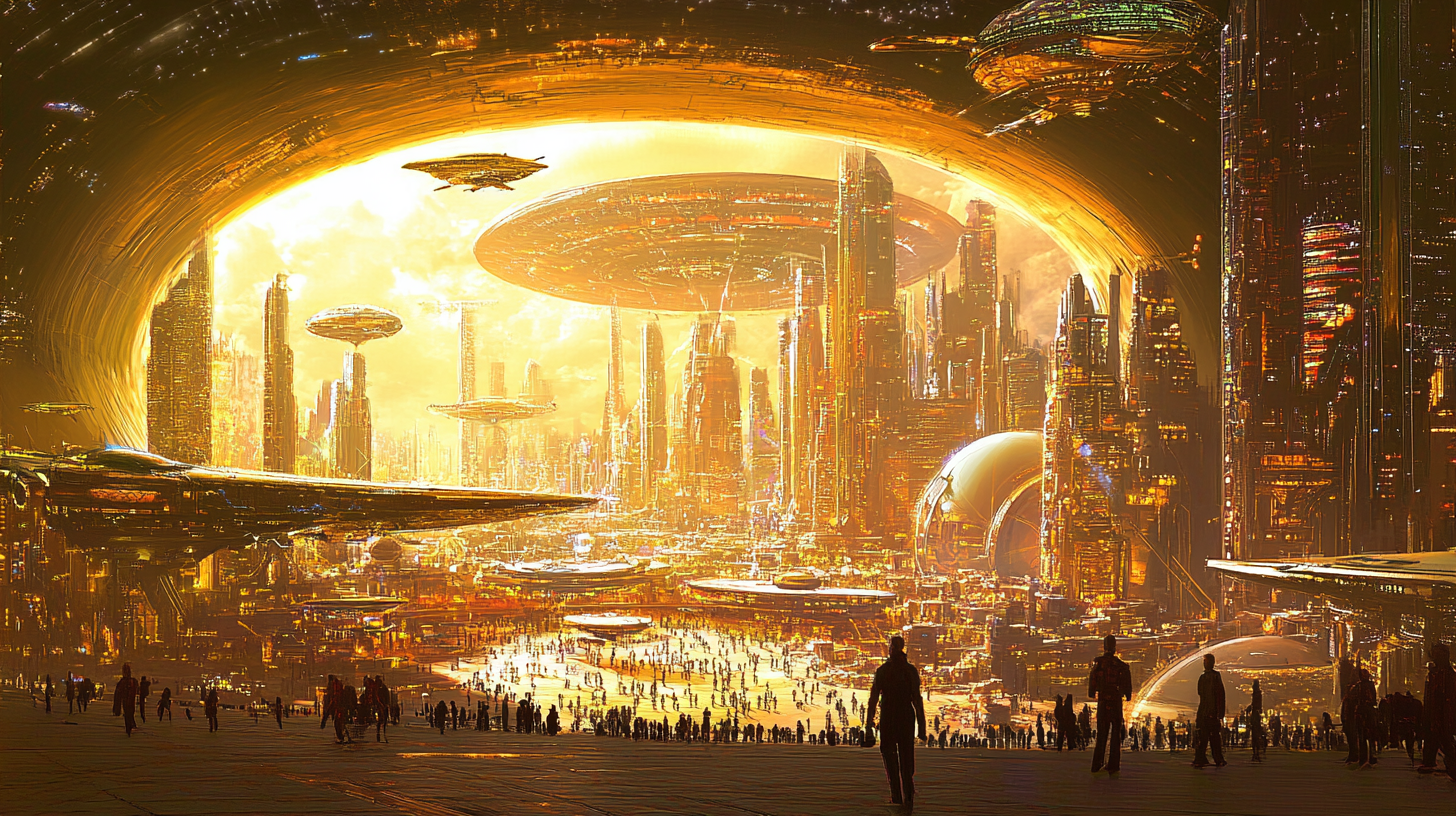
Clarke's depiction of utopia is deliberately ambiguous. On the surface, it is orderly, prosperous, and free from want. But it is also static. In eliminating conflict, something essential to the human condition seems to vanish. The world becomes safe but sterile. This is not a dystopia in the Orwellian sense. It is a warning written in soft tones and subtle loss. It asks whether a society without risk, without trial, can still claim to be alive.
Throughout the novel, Clarke contrasts science and the supernatural—not as opposites, but as elements of a single spectrum. He hints that what is unknowable today may become rational tomorrow. The novel blurs the line between science fiction and mysticism, suggesting that true progress might look like regression to those who cling too tightly to the familiar. Evolution, in Clarke's view, is not just biological. It is spiritual, intellectual, and deeply uncomfortable.
These themes reflected the hopes and fears of the 1950s. The shadow of the atomic bomb loomed large. The space race was only beginning. Faith in technology was rising, but so were doubts about where it might lead. Clarke captured that tension—the desire to reach the stars tempered by a fear of what we might become once we get there.
The novel also meditates on entropy versus order. Progress, Clarke suggests, is not a straight line. It curves, it ascends, and sometimes it disappears into fog. The known world is finite. The unknown is vast. Humanity's potential, while grand, is not guaranteed to follow a path we can understand or control.
"Childhood's End" does not offer comfort. It offers perspective. It reminds the reader that peace may come at the price of something deeply human—and that the next step in evolution may not belong to man at all.
The Engineer as Philosopher – Clarke's Style and Limitations
Arthur C. Clarke wrote with the clarity of a man who wanted to be understood. His prose in "Childhood's End" is unadorned, deliberate, and efficient. There is no flourish for its own sake. Every sentence serves a purpose. This style—at times bordering on austere—is perfectly matched to the novel's themes. Clarke was not a romantic. He was an engineer with a philosopher's questions. The language he chose reflects that balance.
Critics, both contemporary and modern, have pointed out the novel's emotional reserve. The characters are not deeply drawn. They often appear more as symbols or vessels than as fully realized individuals. This is a fair critique. Readers looking for intimacy or psychological nuance may find the narrative distant. But in a story concerned with the fate of mankind rather than the fate of a man, that distance becomes a strength. It grants the novel a universal scale.
Clarke's strength lies in observation. His scientific training gave him a way of seeing the world that was precise and detached. When he describes a transformation or a moment of revelation, he does not resort to hysteria or sentiment. He reports it. And in doing so, he often heightens the sense of awe. By resisting melodrama, he invites the reader to consider the ideas themselves.
In moments where the novel could have turned mystical or vague, Clarke keeps a steady hand. His imagination is vast, but it is grounded in the real laws of physics and logic. This restraint allows the speculative elements to feel credible. The reader never doubts that Clarke has thought through every implication.
In "Childhood's End," Clarke's limitations become part of his discipline. He does not pretend to know the unknowable. Instead, he traces the boundary lines—and then asks what might lie just beyond.
The Light Beyond the Stars
"Childhood's End" remains one of the few science fiction novels that dares to ask what comes after humanity—not in ruin, but in revelation. Its vision is not one of conquest, but of surrender to something larger than oneself, one's nation, or one's species. That idea alone secures its place among the most enduring works in the genre. It is not just a novel of ideas. It is a novel that reorients the reader toward the infinite.
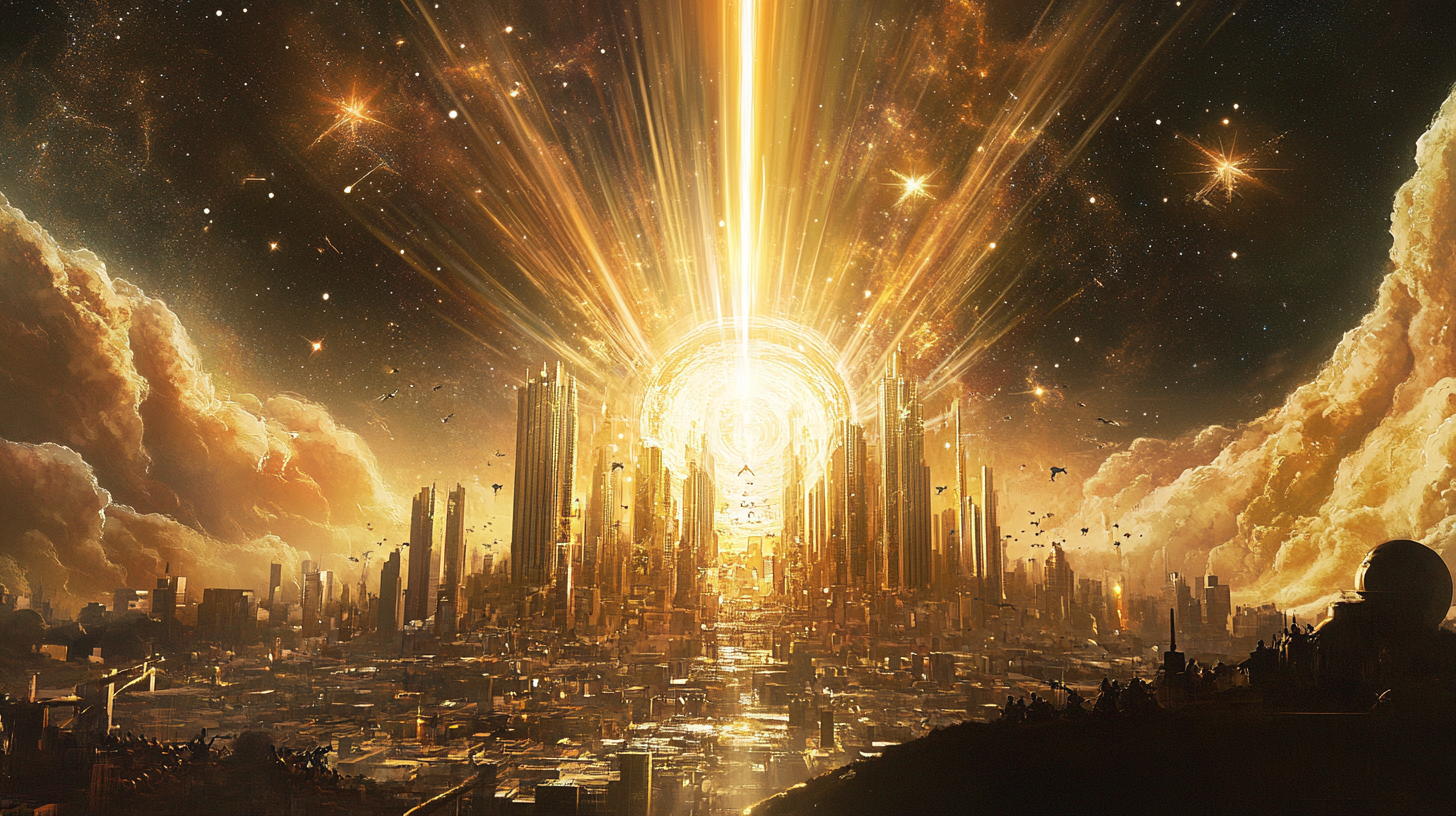
What gives Clarke's work its lasting weight is not prophecy, but perspective. He does not claim to predict the future. He simply imagines a future that forces man to reconsider his place in the cosmos. It is a vision that humbles, not with horror, but with scale. The novel reminds the reader that to evolve is not necessarily to expand—it may be to let go.
In the canon of science fiction, "Childhood's End" is essential not because it offers comfort or clarity, but because it challenges assumptions that civilization often takes for granted. It stands alongside the works of Wells and Stapledon as a philosophical milestone, bridging the physical and the metaphysical with clean, steady prose.
There is a moment near the end of the novel when silence becomes its own form of speech—when words fail, and only wonder remains. Clarke's genius was to make that silence speak. In doing so, he left behind a story that does not close with certainty, but with light—faint, distant, and waiting.

